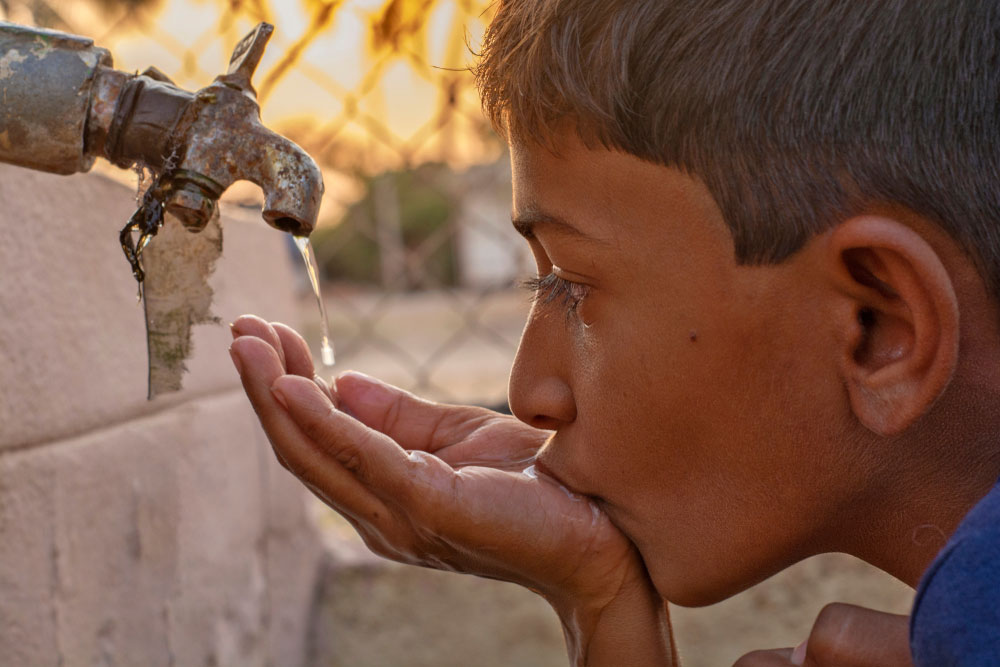The Bengal government has started conducting an assessment to join hands with the Centre to provide piped water supply to the majority of the 1.37 crore rural households in the state.
The move assumes significance as it drops hints that Nabanna is all set to participate in the Centre’s Jal Jeevan Mission, which aims to bring nearly 150 million rural households across the country under piped water supply by 2024.
“The public health engineering (PHE) department is assessing the requirements to bring 90 per cent of the rural households in the state under piped water supply schemes. The assessment involves financial and engineering requirements. The task was taken up after the Centre initiated a scheme to provide piped water to all rural households,” said a senior state government official.
So far, the Trinamul government has refused to join central schemes like Ayushman Bharat, a health insurance plan, and PM-Kisan, which gives direct financial assistance to the farmers. If the state decides to join the Jal Jeevan Mission, it would be the first major central scheme in which the Bengal government will be involved.
Nabanna’s stance has become a talking point in administrative and political circles as the chief minister has been maintaining a distance from the Narendra Modi government by refusing to join its schemes.
A section of state government officials said financial constraints had apparently forced the Bengal administration to reconsider its decision of staying away from central schemes.
“The state is paying a heavy price for the decision of not implementing central schemes here. It is spending nearly Rs 12,000 crore annually to provide cheap food grain, health insurance and direct benefit to farmers, schemes which are modelled on the central ones. It would be a wise decision to join the Jal Jeevan Mission to give piped water to rural households as nearly Rs 2,000 crore will be required to complete the project,” said a senior government official.
Another section of officials pointed out that the state government’s decision of staying away from the central schemes was softened after the chief minister met the Prime Minister and Union home minister Amit Shah in New Delhi last month. “It would be good for the state if the chief minister decides to work together with the Centre. In a federal structure, this is required,” said another official.
According to sources at Nabanna, there are about 18 crore rural households in the country and just about 3.3 crore enjoy piped water supply. Bengal has around 1.37 crore rural households and 90 per cent of them don’t have pipeline connections to get water.
The Jal Jeevan Mission was announced after the BJP formed the government for the second time in May. A meeting to roll out the ambitious plan was held in Delhi a couple of months ago where states were asked to prepare detailed reports on how to meet the target. The Centre and the state will shoulder the expenditure of the project on a 50:50 basis.
“We have 10-12 major water supply projects for rural areas. But we didn’t give household connections under those schemes which were planned to supply water through stand-posts (roadside taps). The PHE is assessing what it would require to give household connections from three types of water supply projects — existing, ongoing and planned,” said a source.
Officials said the household connection feature could be incorporated easily in future projects as the project reports could be altered without difficulty. But it would be a tough to install the facility under the existing projects.











